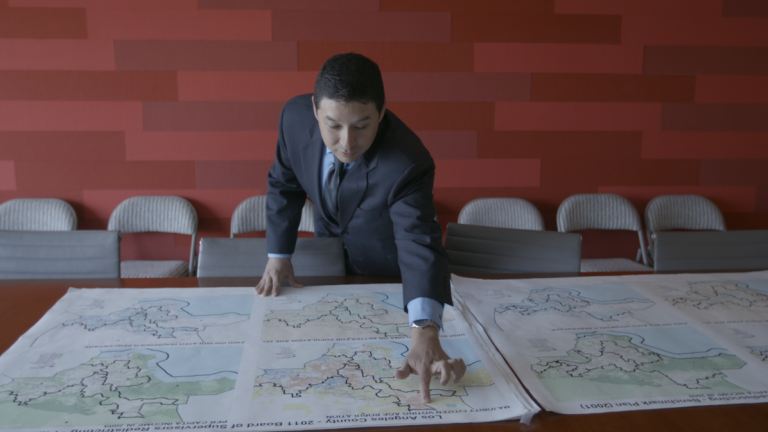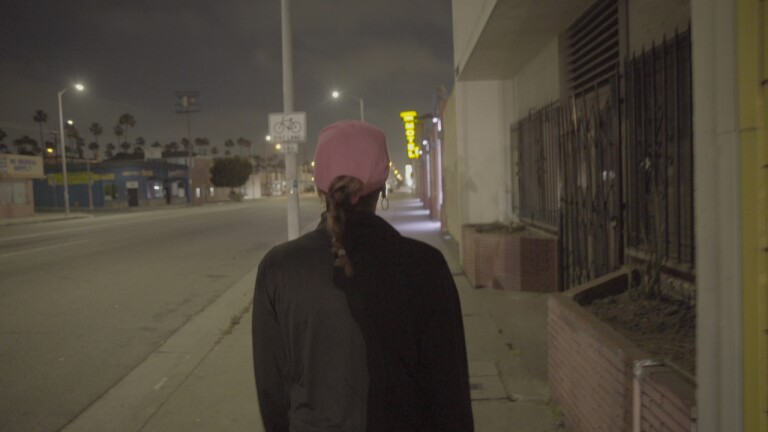
Your Money or Your Life
Fighting cancer takes all you've got, and for millions of patients, it also takes all the money they've got. Even with medical coverage, patients are digging into their own pockets to get the treatments they need. And some who are living longer than expected find themselves buried in debt. In fact, 62% of all bankruptcies in the Unites States are due to medical debt. How does this happen? Correspondent Jennifer London has our story.
TRANSCRIPT
Damian Del Rio/Cancer Patient: Cancer is an ugly disease. I've lost quite a bit. I used to be married, I used to have a full-time job, I had a beautiful home. I was in the process of starting a family.
[An estimated 44 million Americans were paying off medical debt in 2010.]
[28 million of them had health insurance.]
Tim Scully/Cancer Patient: Life has been narrowed. You know, the enjoyment of life, of being part of life has been narrowed, narrowed down to a very small range of opportunities.
Jennifer London: Damian Del Rio and Tim Scully both know what it's like facing a life-threatening medical and financial situation. Damian is in the prime of his life and in an ongoing battle with cancer. Diagnosed with Hodgkins lymphoma at 15, he relapsed 13 years later, only to endure a series of remissions and reoccurences since 2003.
Del Rio: I guess I've got the advantage of having gone through it so many times a total of 5 occurrences. The quicker you can get to acceptance and hope, I think the quicker you can get to healing.
London: And if Damian's journey of living with cancer isn't difficult enough, he's saddled with enormous medical debt that grows larger every day.
Del Rio: It's kind of overwhelming. Stressing out about it just drains so much energy out of you.
London: This, despite the fact that Damian has always had healthcare coverage. And according to a 2009 UCLA study, 2.2 million Californians carry medical debt. Of them two-thirds also have health insurance.
London: For Damian, his medical debt wasn't something he worried about when he thought cancer might kill him. Now that there's a chance he'll survive, Damian has to face a mountain of unpaid bills.
Del Rio: As I clock in remission time, it becomes uncertain what is happening. And at the moment, I'm potentially looking at being cured, is how I like to look at it. And that's scary.
London: Tim Scully is facing the same type of pressure. A former high school principal, Tim was forced to walk away from his career when treating his multiple myeloma, a type of bone cancer, became too exhausting.
London: Despite being covered by a comprehensive Blue Cross plan, Tim had little peace of mind.
Scully: The cap at the time was at a $1,000,000 cap, and I got nervous because the bills that were accumulating very fast were quite high.
London: Can you give me a ballpark?
Scully: For the one stem cell transplant was about a quarter of a million dollars, okay, and I had two. And then with the one chemo thing I was taking was 800-something, 800-plus a pill. I had to take this one infusion which was called IVIG which was an artificial immune system that they give you and one infusion of it was 14,000-plus and I think during that time I had 15 of them. That's huge.
London: Like Damian, Tim doesn't know how much he owes. He can't bear to look. The bills keep piling up, and their health hangs in the balance.
Scully: We pay a lot for insurance, and we pay a lot in co-pays. Our co-pays for medical, for prescriptions last year was close to $6,000.
Del Rio: I'm seeing an oncologist and a cardiologist and a urologist, and it's really, yeah, it's overwhelming. And so my approach to it is to, for the moment, anyways, set it aside to avoid any stress.
Anthony Wright/Executive Director, Health Access: California, and specifically Southern California, is ground zero for the healthcare crisis in America.
London: Anthony Wright is the Executive Director of Health Access, a nonprofit consumer advocacy group.
Wright: We have one of the highest rates of uninsurance. And that's because we have one of the lowest rates of employers offering coverage to their workers. As a result, we have more people who are in the individual market, which is the least efficient, most expensive way to get coverage. And because 20% of the population, if not more, are uninsured, that puts a greater burden on the rest of us who are insured to sort of make up the difference in premiums. So it's a vicious cycle.
London: It's the result of a dramatic shift in who's bearing the cost and the risk of healthcare.
Rob Fuller/ Executive V.P. & COO, Downey Regional Medical Center: Financially, what has happened, is that the idea of spreading risk amongst the entire community has gone out the door.
London: Rob Fuller is the Chief Operating Officer at Downey Regional Medical Center.
Fuller: The insurance companies who are paid a premium theoretically to take risk &mdash and sometimes you win at risk sometimes you lose &mdash have moved that risk off of their books onto the backs of providers and employers and employees. If the rate increases were three. four, five percent, that'd be one thing. But the increases they're demanding &mdash I know because I buy our health insurance for this hospital &mdash we had to pay a 16% increase in our health plan this past year.
London: Are the health insurance companies gouging, then?
Fuller: I think their behavior speaks for itself.
[London: Hi, Patrick. How are you? Thanks for joining us.]
London: Just how do the insurance companies explain this? We spoke with Patrick Johnston, President of the California Association of Health Plans. It lobbies Sacramento on behalf of 40 profit and nonprofit plans.
London: Patrick, it seems as if in the last couple of years there's been a trend towards more and more people that have health insurance are still incurring more and more debt. And it seems like that is the wrong direction to be going.
Patrick Johnston/ President & CEO, California Assoc. of Health Plans: It is true that people suffer from illnesses and then the cost of their share of insurance often rises.
London: Are health insurance companies failing the people that need it the most?
Johnston: Health insurers are audited by the state, and 87 cents of every premium dollar which is billions and billions and billions of dollars every month in California are paid to doctors and hospitals and for medicines. Day to day, people are getting lots and lots of care.
Wright: You have people who are paying premiums month after month, and yet, still have bills if they need major care.
London: In part, because, Wright says, a number of health plans don't give people the level of coverage they think they're paying for. For insured patients in oncology offices like this one, life-saving treatments are often cut short because of cost.
Dr. Richy Agajanian/The Oncology Institute of Hope and Innovation: We have about one in eight patients that can't afford the treatments that we recommend to them, which is a big, big problem. We have another one in four patients run into major debt because they try to make these payments on their own. They're having substantial difficulty with their families and themselves paying for their chemotherapy costs.
London: Dr. Richy Agajanian and his wife Hilda have a staff that tries to get co-payment assistance for patients.
Hilda Agajanian/The Oncology Institute of Hope and Innovation: The patients approach us all the time, sometimes begging and crying. It's very sad. Some patients' families, especially, you know, you get more of the families who plead with us to "please, please, put the patient on treatment. You know, we can't afford our 20% but we'd really like them to start." And a lot of times we do the payment plans but, again, sometimes we have to say no, because it's so enormous, we know they won't be able to pay.
London: The psychological costs are also high. Just ask Tim Scully.
Scully: For me, personally, it's just eating me up inside. That I feel a little bit of me disappears, you know, everyday. But I can't stay there, you know, it's because, you got enough, you know, whirling around you to stay angry at some entity that's structured so that someone else is making a lot of money. Yeah, that does piss you off.
Del Rio: These are all medical bills. If I had to guess, I'd say this is probably four months of unopened medical bills.
London: This is just four months worth?
Del Rio: Yeah.
London: After years of battling his cancer, thinking he very well could lose, Damian is now mustering his courage again. This time, to face the massive cost of trying to save his life.
London: Are you up for opening a couple of pieces today and see what it actually looks like?
Del Rio: Sure
London: And where is that from?
Del Rio: This is from the University of California, San Diego. Looks like this bill here...
London: They've itemized the charges, and you owe $1,029.76. This says final notice. And they sent it to you in March of this year.
Del Rio: That was about the time when I was moving from the home that I foreclosed into my parents' place.
London: And so, when you open this and see this amount, what do you, what goes through your mind?
Del Rio: Well, definitely a little bit of guilt. A sense of helplessness really. It's overwhelming. I really don't think I'm mentally capable, at least, not while I was going through treatment, of really addressing it.
London: Because of Tim's out-of-pocket costs, he has had to forego medications, like the $800 cancer pill. And he can't afford a special pair of $1,200 glasses he needs after four surgeries weren't able to correct the eye muscles destroyed by radiation treatments.
London: So what are you going to do?
Scully: I've put it off for a year. What do I do? I read with one eye, you know.
London: For the Scullys, the economics of getting sick are stark.
Scully: I would say that by the fifteenth of each month, if I had $10 in my pocket, that's all I would have for the rest of the month as far as any kind of spending money. I think the restrictions that are built in to the programs, do not anticipate the breadth of issues that happen when a person gets seriously ill.
London: So they will likely have to sell their home.
Scully: Get the proceeds from the home so we can get to an equal point and then maybe have the security of knowing we can pay these bills that we're not being able to.
[Mrs. Scully: Will you put this in the sink, please?]
[Scully: Okay, I'd be happy to do that]
London: For now, Tim and his wife Margaret are taking it one day at a time.
London: You survived cancer.
Scully: Yes.
London: Will you survive financially?
Scully: Will we exist financially? I think it's "existing." When you say "surviving," and, you know, you've got this picture of surviving and coming out and a robust life afterwards.
London: A move is also likely for Damian, possibly to Mexico, where the cost of living is cheaper.
Del Rio: That's the only way I'm really going to be able to address these costs, is to save a substantial amount of money.
London: And while Damian is still facing the possibility of another relapse, he remains hopeful he'll eventually make it to better shores, there he and his finances are both healthy.
Del Rio: If I didn't have the medical debt, I'd feel more comfortable in moving forward.
London: I'm Jennifer London for SoCal Connected.























